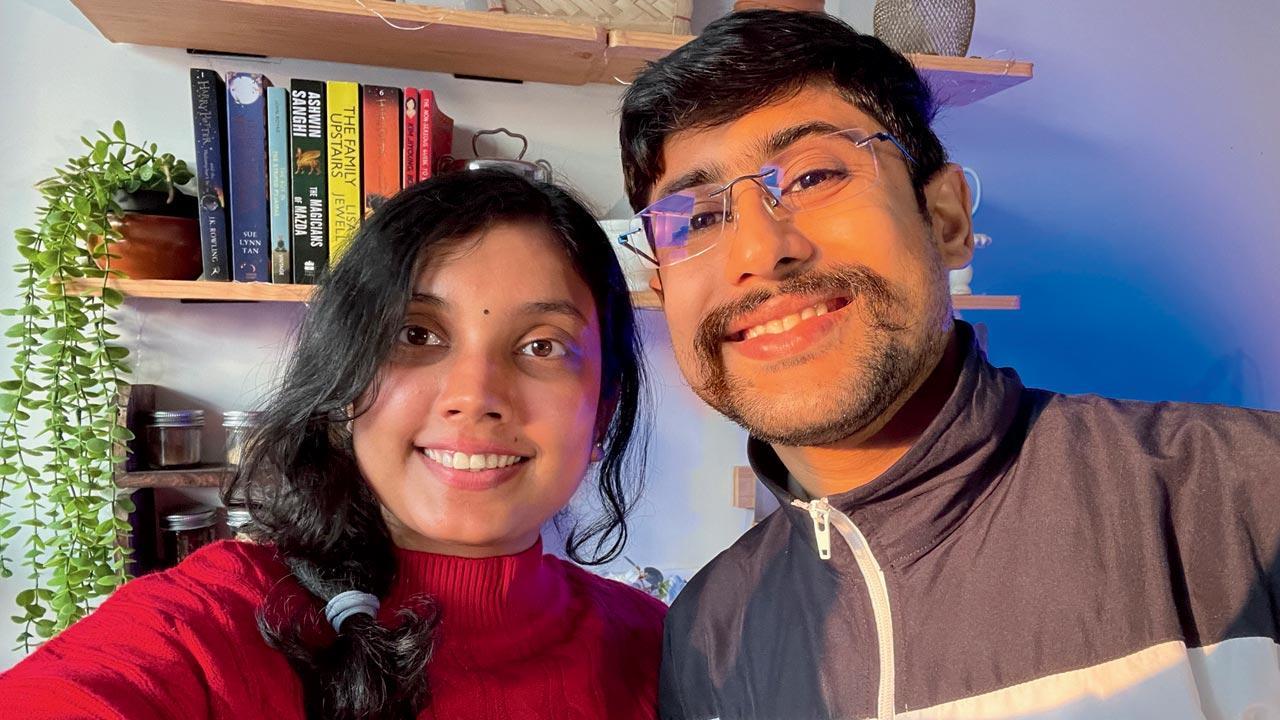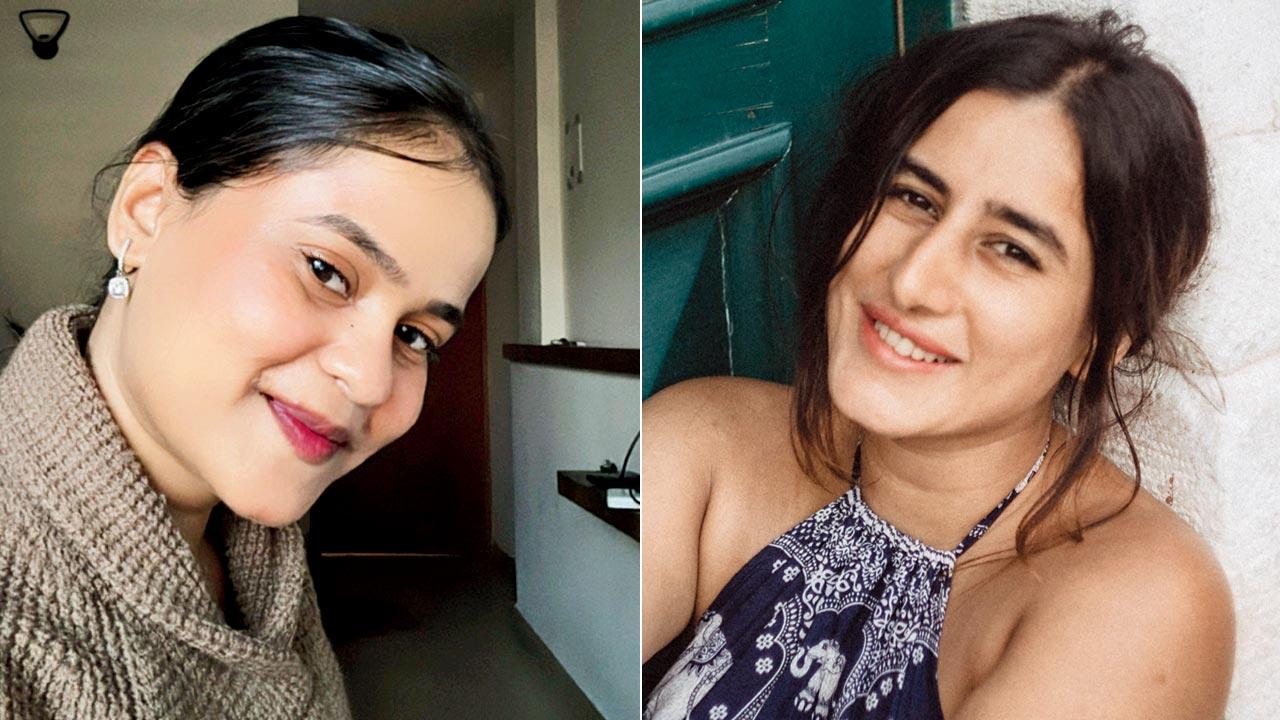They cook, clean and raise kids—and are over the moon about it. What is the tradwife trend, and why is it leading to burning debates on feminism on social media pages of Indian food bloggers?

Sahini Banerjee , who runs the popular Insta page @feashts, says young women see her cooking for her husband Sunny and tell her they want to be a tradwife
Sahini Banerjee, Instagram food content creator who goes by the handle @feashts, posts a video with an unconventional recipe that came to her in a dream—beetroot lava cake—and waits excitedly to see whether people will appreciate the creativity behind it. Instead, within hours, a male follower comments, “Shadi hamesha ache khane banane wali se karo. Pyaar kam ho bhi jaye lekin khana swadisht rahega.”
ADVERTISEMENT
Pat comes her reply: “Pyaar na hota toh hum yeh banate nahi. Kaccha beet khila dete.”
Such comments have become all too common on her videos, something Sahini is not happy about at all. There are men who remark that her husband Sunny, who edits her videos and features in quite a few of them, is lucky to have her. Others wish their wives were like her, cooking such a wide variety of dishes from scratch.
“I find this comparison between women very uncomfortable. I cook because I enjoy it, but just because I happen to be a woman, it becomes gendered,” the 30-year-old says.
 Ghazala Afreen and Saloni Chopra
Ghazala Afreen and Saloni Chopra
The tone of the comments brings to mind the tradwife sub-culture in Western social media. The term refers to a ‘traditional wife’ and denotes women who practise traditional gender roles.
Banerjee is best known for her Ei Sunny videos, where she sweetly asks her husband, “Ei Sunny, ki khaabi [Ey Sunny, what do you want to eat]?” and then goes on to cook a meal from scratch and serve it to him. Since she started the popular series in 2021, several other young women have taken to cooking from scratch and sharing similar videos.
To those who don’t follow Banerjee’s account regularly, on the surface it might seem like she is an Indian tradwife. But she’s affronted by this assumption.
“Three or four times, I have gotten messages from young women saying, ‘I want to be a tradwife like you’. They say all they want is a peaceful life and a husband they can cook for and who will love them. This really worried me. This idea is not something I want to put out into the world. I don’t cook because I am Sunny’s wife and he doesn’t like me just because I cook. He doesn’t expect me to cook regularly either; he knows I will do it when I feel like it,” says the Delhi resident, who was a researcher at the Indian Statistical Institute in Kolkata before she switched to content creation.
And it is a full-time job. “Each reel takes 17 hours just to conceptualise, script, storyboard, shoot, and edit. Then writing out the recipes, captions and posting it takes another couple of hours. I am not a tradwife; I work full-time and make good money out of it. Not for one moment do I want anyone to think I am promoting the idea of women leaving their jobs to become someone’s wife. You can be someone’s wife while having your own interests.
“In fact, even self-proclaimed tradwives are not traditional wives; they are businesswomen,” she emphasises. “They are selling a product—themselves—to other women. Traditional wives are supposed to stay home and serve their husbands, which is an archaic idea that shouldn’t exist anymore.”
She pushes back against the comments in different ways. In one reel, she says, “How to get a wife like me? Wives like me are made by [supportive] husbands like Sunny,” addressing the most common refrain by men. “I’m also in the process of writing a script to tell young women not to be fooled by social media. I know women take breaks from careers to raise children, and my mother is a homemaker. I don’t criticise that, but I have a problem when young women want to quit their education or job because they think this is a softer life,” she says.
She has encouraged her camera-shy husband to post more videos of him cooking on his own Insta handle @level1.cook. “In reels, people don’t always get to see our dynamic. They think I’m there to serve my husband. At home, I don’t cook every day. I cook in the studio. Our cook, or Sunny and my mother-in-law make our daily meals,” she says.
Like Banerjee, 26-year-old Ghazala Afreen (@delish_us_) too faced challenges. On her videos of cooking a variety of items from scratch—burgers, pasta, ice cream—she gets comments like, “Kitni achhi biwi hai iski jo bolta hai wo banati hai…meri wali to bolti hai ke khud bana, khud kha aur mujhe bhi khila”.
“I said if his wife has requested him to cook, he should try to make something, she’ll be happy,” says the Bengaluru content creator. “Men say they only want a wife who can cook like me, but that’s not why Saif married me. He could have just hired a cook if that’s what he wanted.”
Unexpectedly, Afreen gets quite a bit of hate from women, particularly from the Muslim community. “I get messages saying that I am setting unrealistic standards for wives, not everybody can afford the time and energy to cook such elaborate meals from scratch. Some women lament that their husbands don’t even appreciate their efforts like Saif does. They say ‘This is not reality, it’s just a fantasy’. There are others who appreciate my videos and say they wish they could make these dishes too, but their husbands never help,” says Afreen, who used to be a corporate risk analyst. “I’m not a tradwife; I just enjoy cooking. Both my husband and I are feminists—that one reason I married Saif. He always contributes to cooking and cleaning. But if I ever showed him doing that in a video, I’d probably get offensive comments. You can’t post anything on social media without someone taking it the wrong way,” she says.
While the tradwife movement is yet to officially make its way here, there’s a larger debate at play about women and agency. The sub-culture has come under fire from feminists. Others argue that feminism, which is all about advocating agency for women, should respect that this, too, is a valid choice. That argument does not hold in India, at least, says actor, filmmaker and writer Saloni Chopra.
“Most of our mothers were/are OG tradwives—without followers or fame,” she says. “There already exists a culture that glorifies it. I’m 100 per cent on board with women choosing to stay at home, but in order for this to be a real choice, women should be equally independent when they stop becoming wives.”
Chopra is not surprised that so many women would rather stay home and cook. “We don’t raise women to aspire to have ambition like we do men,” she says, “Girls grow up dreaming about their wedding day. Women who stay at home are, in fact, working extra hours, with zero time off, no health support or any security. The only thing you rely on is that your husband will continue to support you, even if or when you disagree or disobey. Let’s turn unpaid labour into paid labour—introduce a wage for all the work women do in order for men to have jobs outside the house. And then have a larger conversation about choice.”
Famous tradwives
 Nara Aziza Smith
Nara Aziza Smith
Notable tradwives such as Nara Smith (@naraaziza) and Hannah (@BallerinaFarm) have built social media personas around cooking from scratch, cleaning and child-rearing—all in a dress and makeup—while the husband goes to work. Smith is also infamous for making DIY suncreen. Lucy Makes (@lucymakes_) once fermented cacao fruit, roasted it and made chocolate from scratch because her husband was craving brownies.
 Subscribe today by clicking the link and stay updated with the latest news!" Click here!
Subscribe today by clicking the link and stay updated with the latest news!" Click here!







